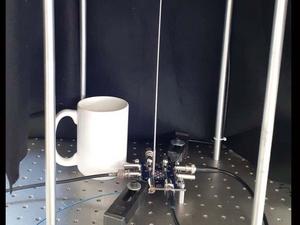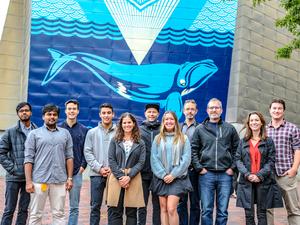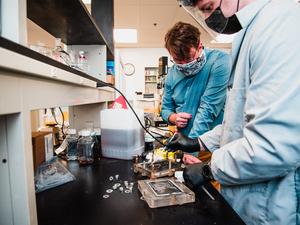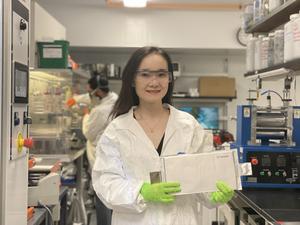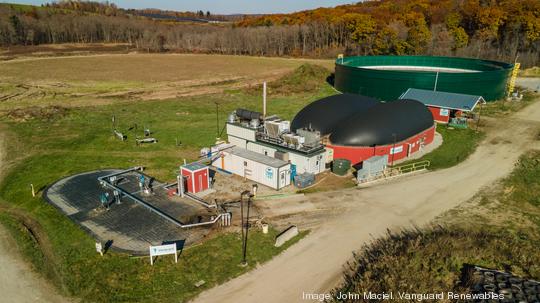
Driven by a growing interest in renewable natural gas, this Wellesley energy company is looking to double its headcount this year.
Vanguard Renewables was founded in 2014 to construct and operate "anaerobic digesters" that create renewable natural gas. To keep up with the growing demand for its waste-to-energy projects, the company plans to hire around 100 people in 2022, bringing its total headcount to 200.
“I’ve got more customers who want to buy gas from me than I have plants in development or construction right now,” said Neil Smith, who joined Vanguard last October as CEO.
The company’s anaerobic digestors take cow manure and food waste and break it down using bacteria. Smith described the process as a huge crockpot, which heats the waste to produce methane. Vanguard captures and cleans the methane to sell it as natural gas.
Anaerobic digester gas is classified as renewable energy by state regulators. Organics-to-energy systems are usually sited on farms, food processing plants or wastewater treatment facilities. When carbon dioxide is removed from the methane-rich fuel, it's known as "renewable natural gas," according to the Massachusetts Clean Energy Center.
According to the Natural Resources Defense Council, when RNG is carefully developed, it is "carbon neutral" and can help reduce greenhouse gas emissions from the energy sector.
Vanguard has six active anaerobic digesters in New England, five in Massachusetts and one near Middlebury College in Vermont. Smith said the company purposefully locates its digesters on dairy farms. The byproducts of this process include organic fertilizer and a hay-like material, which the company gives to the farmers.
“Our story is a farm story. We make the farms more sustainable,” Smith said. “We make the farms more viable in the long run by giving them these benefits for effectively leasing us the land and hosting our facilities.”
Anaerobic digesters are prevalent across Europe, Smith said, with around 9,000 across the continent. In contrast, Smith said there are only about 150-200 digesters in the U.S. He said the U.S. has been hesitant to subsidize or pay for this form of natural gas, but that is changing as more companies commit to clean-energy goals.
“There are these CEOs and they get up on their earnings call and say we’re gonna be net zero by 2025 or 2030,” Smith said. “They realize, well we can electrify this and we can do solar panels here. But then realize, well, we’ve got these thermal fuel needs that just cannot be converted to electricity easily.”
Vanguard is trying to keep up with this demand. It has 10 digestors in construction in Colorado, Georgia and Nevada. The company plans to have 150 sites in the next three to four years.
The company plans to hire another 100 employees this year across all functions, including HR, accounting and construction operations. Most of the new hires will be in the Boston area. By the time Vanguard hits 150 sites, Smith aims to have 750 employees across the country.
Sign up for The Beat, BostInno’s free daily innovation newsletter from BostInno reporter Hannah Green.
Smith is not new to leading a rapidly growing company. He joined energy startup Intergen in 1995 when it had 20 employees. When he retired as CEO in 2016, the company was a global multibillion-dollar business with hundreds of employees.
From his work at Intergen, Smith said he knows that quickly building Vanguard into a successful company will depend on the quality of people they attract and retain and the company culture. His priority right now is hiring people who believe in the company’s mission and making them feel valued.
“The hard part is finding the person in the first place,” Smith said. “But for the people we find, once they realize what we’re doing, it’s hard not to get excited about what we do.”
Vanguard is operating in an emerging market in the U.S., and to stay on top, Smith said the company is betting it can move faster than the competition.
“It’s a fragmented business and we’re one of the first people who’s out there trying to develop a national fleet of these plant on the organic side,” Smith said. “So we got first-mover advantage. We got to keep ahead of the competition.”
Providence Business First reporter Mary Serreze contributed to this story.
